This article was co-authored by Ran D. Anbar, MD, FAAP. Dr. Ran D. Anbar is a pediatric medical counselor and is board certified in both pediatric pulmonology and general pediatrics, offering clinical hypnosis and counseling services at Center Point Medicine in La Jolla, California and Syracuse, New York. With over 30 years of medical training and practice, Dr. Anbar has also served as a professor of pediatrics and medicine and the Director of pediatric pulmonology at SUNY Upstate Medical University. Dr. Anbar holds a BS in Biology and Psychology from the University of California, San Diego and an MD from the University of Chicago Pritzker School of Medicine. Dr. Anbar completed his pediatric residency and pediatric pulmonary fellowship training at the Massachusetts General Hospital and Harvard Medical School and is also a past President, fellow and approved consultant of the American Society of Clinical Hypnosis.
There are 20 references cited in this article, which can be found at the bottom of the page.
This article has been viewed 46,685 times.
It's a scary thing to be diagnosed with cancer. Many people have lost friends or family to this disease. However, an increasing number of people do survive cancer due to earlier and more accurate diagnoses and more effective treatments. The main medical therapies used to treat cancer are surgery, chemotherapy, radiation therapy, targeted therapy and immunotherapy. Other factors that improve your odds of surviving cancer include a good diet, regular physical activity, a caring support network and a positive attitude.[1] With good medical care, self-care and the support of others, you can increase your chances of surviving cancer.
Steps
Exploring Medical Treatment Options
-
1Talk to your doctor about a tissue biopsy. Some types of cancer (prostate, breast, lymphoma for examples) are best diagnosed with a minor biopsy procedure (taking a tissue sample with a long needle) to see if cancer cells are present. A biopsy is considered a diagnostic surgery — to see if the cancer cells can be detected.[2]
- Biopsies can not only detect if cancer cells are present in some area of the body, but they can also give your doctor an idea of cancer type and general degree of aggressiveness.
- A biopsy procedure is fairly low risk for anything serious such as an infection, but bruising, tenderness (for a few days or more) and minor bleeding are common side effects.
-
2Discuss curative and preventative surgeries with your doctor. Some types of cancer, such as squamous cell carcinoma of the skin, can be entirely removed and cured with surgery — so it's referred to as curative surgery.[3] However, it's important to realize that most types of cancer cannot be entirely removed via surgery because cancer cells often spread throughout the body, which is called metastasis.
- The best time to remove a cancerous tumor is in it's early stages before it spreads to other sites via the blood.
- Preventive (prophylactic) surgery is done to remove tissue (such as the breast) that’s likely to become cancerous, despite not showing any signs of cancer.[4]
Advertisement -
3Ask your doctor about radiation therapy. Radiation therapy uses high-energy x-rays to kill or damage cancer cells in specific areas of the body by altering the genes (DNA) in the cells. It's one of the most common treatments for cancer (by itself or in combination with other therapies). Radiation can be very effective for lymphomas, lung cancer and various skin cancers, among others.[5]
- Radiation therapy doesn’t always kill cancer cells right away. Instead, it might take many days or weeks of treatment for the cancer cells to start dying.
- Cancer cells may continue dying for months after the radiation treatments end.
- Radiation can also burn healthy tissue and there's even a small risk of triggering cancer cells due to its ability to alter DNA, so talk to your doctor about the pros and cons of the therapy.
-
4Consult your doctor about chemotherapy. Chemotherapy involves using medicines or drugs to kill cancer cells. Although surgery and radiation therapy kills or damages cancer cells in relatively specific areas, chemotherapy works throughout the entire body because the chemicals travel within the bloodstream. Chemotherapy can kill cancer cells that have metastasized far away from the primary (original) tumor.[6]
- Chemotherapy often shrinks tumors and/or stops cancer cells from dividing, but doesn't entirely get rid of cancer — it's controlled and managed as a chronic disease instead.
- Chemotherapy is often recommended for lung, ovarian, pancreatic and blood cancers.
- The problem with chemo is that it can also kill healthy cells in the body, which can lead to negative side effects.[7]
-
5Consider targeted cancer therapy instead. As scientists have learned more about the triggers for growth and spread of the various types of cancer cells, they've developed drugs that target the differences.[8] As such, this drug-based treatment is typically called targeted cancer therapy. In essence, it's a more specific type of chemotherapy that generally leads to fewer and more mild side effects.
- Targeted drugs can be used as the main therapy for some cancers, but typically they’re given along with standard chemotherapy, surgery and/or radiation therapy.
- Much like standard chemotherapy, targeted therapy is given intravenously (directly into the veins) or as pills. However, targeted therapy tends to be much more expensive than regular chemo.
-
6Learn about cancer immunotherapy as a treatment. A relatively newer type of cancer treatment that can increase your chances of survival is called immunotherapy, which uses certain parts of your immune system to combat cancer cells. This can be done by either boosting your own immunity to attack the cancerous cells or by giving your body immune system components, such as special proteins.[9]
- Some types of immunotherapy are also called biologic therapy, bio-therapy or cancer vaccines.
- Monoclonal antibodies are immune system proteins that attack specific parts of cancer cells.
- Immunotherapy works better for certain types of cancer at certain stages, so ask your doctor if it's a good option for your situation.
-
7Investigate stem cell transplants for cancer. Stem cell transplants can also be used to treat cancer and increase your survival rate. Stem cells are essentially immature (undifferentiated) blood cells found in your bone marrow and blood. However, these adaptable cells can mature into all types of different blood cells and help to treat or even cure various types of cancer. Stem cell transplants are also used to replace bone marrow and blood that's been destroyed by cancer, chemo and/or radiation therapy.[10]
- Stem cell transplants are most effective for cancers affecting your blood or immune system, such as leukemia, lymphoma and multiple myeloma.[11]
- Stem cells can be donated from a donor (from their bone marrow) or gotten from fetal tissues.
- The cost of a stem cell transplant is more than any other type of cancer treatment.
Adopting Other Cancer Survival Strategies
-
1Make an effort to eat well. In addition to getting treatment from a cancer specialist, another important factor in increasing your risk of survival is eating nutritious food. Your body, particularly your immune system, needs lots of vitamins, minerals, amino acids and healthy fats to fight cancer and other diseases. Furthermore, fighting cancer (and other chronic diseases) requires lots of energy, so getting enough calories per day is also important.
- A healthy cancer-fighting diet should include lots of fresh fruits and veggies (particularly ones rich in antioxidants, such as dark berries, grapes, broccoli and peppers), lean meat and fish, as well as fibrous whole grains.
- Cancer tends to thrive on sugar, especially refined sugar, so avoid soda pop, milk chocolate, ice cream, candy, cakes, donuts and most desserts if your have cancer.
-
2Get lots of regular exercise. Another way to boost your immune system and maintain a healthy weight is by getting regular (daily) cardiovascular exercise. However, exercising (and eating) might be difficult during some types of treatment, such as chemo. Great types of cardiovascular exercise for cancer patients include brisk walks, hiking, cycling, swimming and jumping on a trampoline.
- Exercise also improves blood flow, strengthens bones and muscles, improves lung function, stimulates appetite, improves sleep and elevates mood — which are all factors important for surviving cancer.
- Depending on the type and stage of cancer you have, some exercises may be inappropriate, so always okay any activity with your oncologist.
-
3Surround yourself with a loving support group.[12] One thing many long-term cancer survivors have in common is that they have friends and family they can depend on for emotional, spiritual and/or physical support.[13] In contrast, being alone without anyone to confide in and get emotional support from significantly increases the risk of dying from all forms of cancer (and many other diseases).
- Don't be ashamed or embarrassed by a cancer diagnosis and not tell friends and family. Instead, tell them immediately and allow them to digest the information and help in their own ways.[14]
- If you don't have or can't count on your friends or family, there are many cancer support groups to join, either in person or online. Ask your local hospital and church for information.[15]
-
4Keep a positive attitude. Although many miracles are attributed to the power of positive thought, there's currently no scientific proof that a positive attitude (alone) gives you an advantage in cancer treatment or improves your chances of survival.[16] However, a positive attitude can improve the quality of your life during cancer therapy and beyond, which makes surviving the disease more worthwhile.[17]
- A positive attitude is more likely to keep you physically active, maintain ties to friends and family and continue on with social activities, which are all tied to cancer survival.
- A positive attitude also enables you to look at cancer as a hurdle or challenge to overcome, and not a death sentence to fear and dread.[18]
Reducing the Likelihood of Cancer Returning
-
1Get regular check ups or follow-up care. Perhaps the most important aspect of surviving cancer for the long term is getting regular check ups after the above-mentioned treatments have either "cured" your cancer or put it into remission. The main point of continuous follow-up care is to check if your cancer has returned or spread to other parts of your body.[19]
- Frequent check ups (1-2x per year) can also help to find other types of cancer and detect any side effects from your cancer treatment.
- Follow-up care typically involves seeing your family doctor or oncologist (cancer specialist) to review your medical history and get a physical examination, blood tests and/or imaging studies (x-rays, MRI, CT scan).
-
2Combat stress.[20] Although the research is mixed in regards to if chronic stress can actually induce cancer or cause it to return directly, there's no question that long-term stress weakens the immune system and hampers its ability to fight cancer cells from developing.[21] As such, combat stress in your life with stress-relieving practices such as yoga, tai chi, meditation, deep breathing techniques and positive visualization.[22] Join a class at your local gym, church or community association and learn how to do these activities properly.
- Deal with stressful situations head on, both at work and at home, and don't let them become chronic and negatively impact your health.
- Chronic stress also increases the probability of certain behaviors developing that are linked to increasing the risk of cancer, such as smoking, drinking too much alcohol and overeating.[23]
-
3Keep your weight under control. Compared with people of normal weight, those who are overweight or obese are at greater risk for many diseases, including certain cancers — particularly cancer of the esophagus, pancreas, colon, rectum, breast, endometrium, kidney, thyroid and gallbladder.[24] As such, keeping your weight down is one of the more important acts that increase your chances of surviving these cancers long term.
- Long-term weight loss depends on two main factors: reducing your daily caloric intake from food along with regular daily exercise — even just 30 minutes of walking each day.
- For most women, eating less than 1,500 calories per day leads to some weight loss every week even with light exercise. Most men will lose weight if they consume less than 2,000 calories per day.
- To lose or maintain a healthy weight, eat lean meats and fish, whole grains, fresh veggies and fruit and drink lots of water. Avoid fast food, processed food, baked goods, candy, chocolate and soda pop.
Expert Q&A
Did you know you can get expert answers for this article?
Unlock expert answers by supporting wikiHow
-
QuestionHow do you cope with being diagnosed with cancer?
 Ran D. Anbar, MD, FAAPDr. Ran D. Anbar is a pediatric medical counselor and is board certified in both pediatric pulmonology and general pediatrics, offering clinical hypnosis and counseling services at Center Point Medicine in La Jolla, California and Syracuse, New York. With over 30 years of medical training and practice, Dr. Anbar has also served as a professor of pediatrics and medicine and the Director of pediatric pulmonology at SUNY Upstate Medical University. Dr. Anbar holds a BS in Biology and Psychology from the University of California, San Diego and an MD from the University of Chicago Pritzker School of Medicine. Dr. Anbar completed his pediatric residency and pediatric pulmonary fellowship training at the Massachusetts General Hospital and Harvard Medical School and is also a past President, fellow and approved consultant of the American Society of Clinical Hypnosis.
Ran D. Anbar, MD, FAAPDr. Ran D. Anbar is a pediatric medical counselor and is board certified in both pediatric pulmonology and general pediatrics, offering clinical hypnosis and counseling services at Center Point Medicine in La Jolla, California and Syracuse, New York. With over 30 years of medical training and practice, Dr. Anbar has also served as a professor of pediatrics and medicine and the Director of pediatric pulmonology at SUNY Upstate Medical University. Dr. Anbar holds a BS in Biology and Psychology from the University of California, San Diego and an MD from the University of Chicago Pritzker School of Medicine. Dr. Anbar completed his pediatric residency and pediatric pulmonary fellowship training at the Massachusetts General Hospital and Harvard Medical School and is also a past President, fellow and approved consultant of the American Society of Clinical Hypnosis.
Pediatric Pulmonologist & Medical Counselor Find out about emotional support resources for your diagnosis and tell your loved ones about your diagnosis in detail, including how it impacts you, so that they can be of most help to you. As a benefit, when you teach others about your diagnosis you can develop a better understanding of it. You can also seek out a mental health professional who can help you cope with your illness and guide you throughout the process of healing.
Find out about emotional support resources for your diagnosis and tell your loved ones about your diagnosis in detail, including how it impacts you, so that they can be of most help to you. As a benefit, when you teach others about your diagnosis you can develop a better understanding of it. You can also seek out a mental health professional who can help you cope with your illness and guide you throughout the process of healing. -
QuestionHow do I avoid cancer?
 Marsha Durkin, RNMarsha Durkin is a Registered Nurse and Laboratory Information Specialist for Mercy Hospital and Medical Center in Illinois. She received her Associates Degree in Nursing from Olney Central College in 1987.
Marsha Durkin, RNMarsha Durkin is a Registered Nurse and Laboratory Information Specialist for Mercy Hospital and Medical Center in Illinois. She received her Associates Degree in Nursing from Olney Central College in 1987.
Registered Nurse
-
QuestionWhat are the chances of survival for stage 4 mouth cancer.
 Marsha Durkin, RNMarsha Durkin is a Registered Nurse and Laboratory Information Specialist for Mercy Hospital and Medical Center in Illinois. She received her Associates Degree in Nursing from Olney Central College in 1987.
Marsha Durkin, RNMarsha Durkin is a Registered Nurse and Laboratory Information Specialist for Mercy Hospital and Medical Center in Illinois. She received her Associates Degree in Nursing from Olney Central College in 1987.
Registered Nurse
References
- ↑ http://www.cancer.org/treatment/survivorshipduringandaftertreatment/
- ↑ https://www.cancer.org/treatment/understanding-your-diagnosis/tests/testing-biopsy-and-cytology-specimens-for-cancer/biopsy-types.html
- ↑ http://www.cancer.org/treatment/treatmentsandsideeffects/treatmenttypes/surgery/how-surgery-is-used-for-cancer
- ↑ https://www.cancer.org/cancer/breast-cancer/risk-and-prevention/preventive-surgery-to-reduce-breast-cancer-risk.html
- ↑ https://www.cancer.gov/about-cancer/treatment/types/radiation-therapy
- ↑ https://www.cancer.org/treatment/treatments-and-side-effects/treatment-types/chemotherapy/how-is-chemotherapy-used-to-treat-cancer.html
- ↑ https://www.cancer.org/treatment/treatments-and-side-effects/treatment-types/chemotherapy/chemotherapy-side-effects.html
- ↑ http://www.cancer.org/treatment/treatmentsandsideeffects/treatmenttypes/targetedtherapy/targeted-therapy-what-is
- ↑ https://www.cancer.org/treatment/treatments-and-side-effects/treatment-types/immunotherapy/what-is-immunotherapy.html
- ↑ https://www.cancer.gov/about-cancer/treatment/types/stem-cell-transplant
- ↑ http://www.cancer.org/treatment/treatmentsandsideeffects/treatmenttypes/bonemarrowandperipheralbloodstemcelltransplant/stem-cell-transplant-why-stem-cell-trans-used
- ↑ Ran D. Anbar, MD, FAAP. Pediatric Pulmonologist & Medical Counselor. Expert Interview. 7 July 2020.
- ↑ https://www.cancer.org/treatment/support-programs-and-services/online-communities.html
- ↑ Ran D. Anbar, MD, FAAP. Pediatric Pulmonologist & Medical Counselor. Expert Interview. 7 July 2020.
- ↑ https://www.cancer.gov/about-cancer/coping/adjusting-to-cancer/support-groups
- ↑ https://www.cancer.org/treatment/survivorship-during-and-after-treatment/coping/attitudes-and-feelings-about-cancer.html
- ↑ Ran D. Anbar, MD, FAAP. Pediatric Pulmonologist & Medical Counselor. Expert Interview. 7 July 2020.
- ↑ Ran D. Anbar, MD, FAAP. Pediatric Pulmonologist & Medical Counselor. Expert Interview. 7 July 2020.
- ↑ https://www.cancer.org/healthy/find-cancer-early/american-cancer-society-guidelines-for-the-early-detection-of-cancer.html
- ↑ Ran D. Anbar, MD, FAAP. Pediatric Pulmonologist & Medical Counselor. Expert Interview. 7 July 2020.
- ↑ http://www.cancer.gov/about-cancer/coping/feelings/stress-fact-sheet
- ↑ https://www.helpguide.org/articles/stress/quick-stress-relief.htm
- ↑ https://www.ncbi.nlm.nih.gov/pmc/articles/PMC7466429/
- ↑ http://www.cancer.gov/about-cancer/causes-prevention/risk/obesity/obesity-fact-sheet
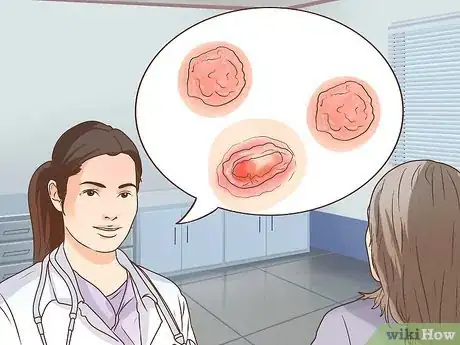

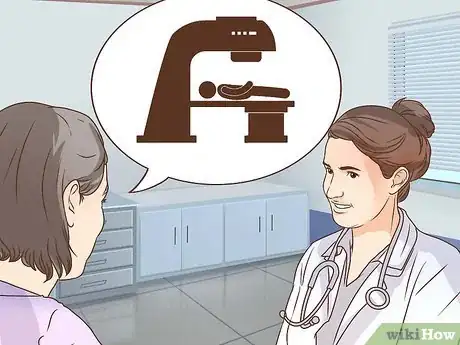
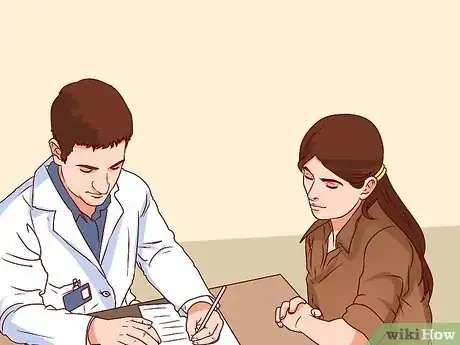
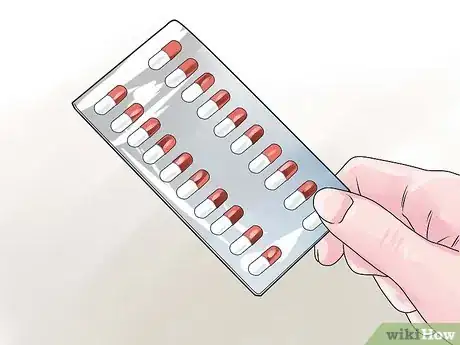
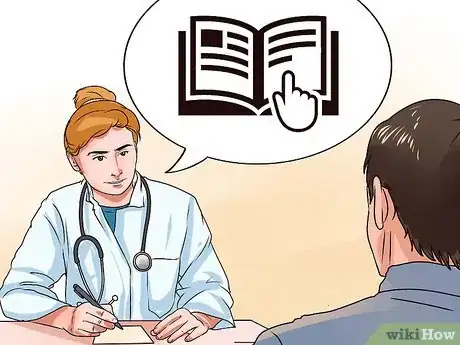



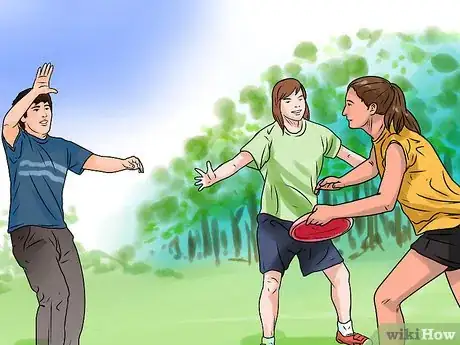


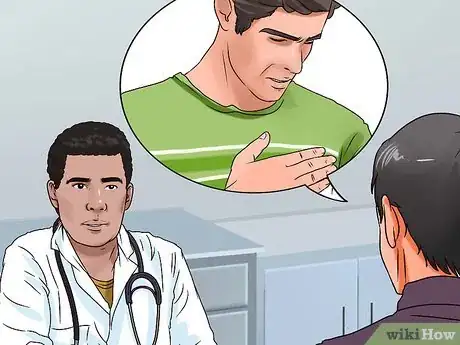




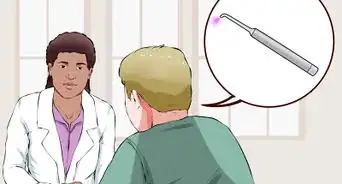
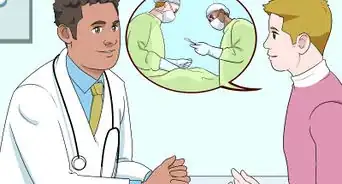


-Step-13.webp)

-Step-8-Version-3.webp)

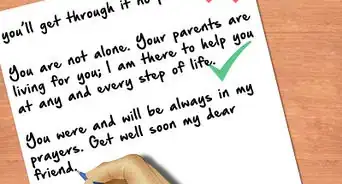












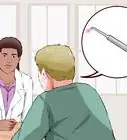
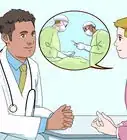



































Medical Disclaimer
The content of this article is not intended to be a substitute for professional medical advice, examination, diagnosis, or treatment. You should always contact your doctor or other qualified healthcare professional before starting, changing, or stopping any kind of health treatment.
Read More...